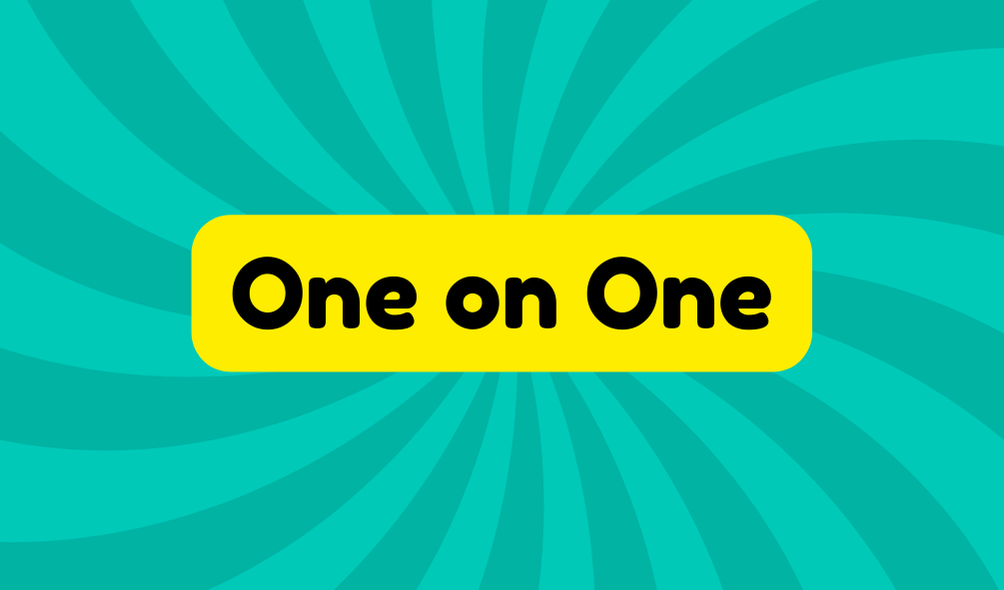One-on-one refers to personal interactions that prioritize clear communication. It first came from baseball, describing a pitcher facing a hitter, then shifted to sports like basketball, where individual matchups mattered. Today, it's widely used in business and mentoring contexts. For example, scheduling a one-on-one meeting can clarify project goals between a manager and an employee. These sessions foster engagement and trust, essential for effective problem-solving. Ignoring such personalized interactions risks losing the human touch in communication. Understanding its significance might just change how you interact, so keep exploring to see how it can enhance your conversations.
Synonyms
When you think about "one-on-one," several synonyms might come to mind that capture its essence. These alternatives can enhance your networking strategies and communication techniques, so it's crucial to grasp their nuances.
- Solo session emphasizes individual focus.
- Personal meeting highlights intimate dialogue.
- Direct interaction underscores the exclusivity.
However, it's important to be cautious. Not every synonym fits every context; the wrong choice can dilute your message. While "one-on-one" underscores directness, terms like "solo session" might imply isolation rather than collaboration. Understanding these terms can sharpen your communication skills. Consider how you use them in professional settings to guarantee clarity and effectiveness. Innovate in your approach, balancing the art of conversation with the precision these synonyms offer.
Example of Sentences
Utilizing "one-on-one" interactions can notably enhance communication effectiveness in various situations. It's essential to embrace these opportunities for personal development and effective listening. Here are some examples of how you can incorporate one-on-one interactions:
- You could schedule a one-on-one meeting to address project specifics with your team member.
- Attending weekly one-on-one sessions with your manager might provide insights into your progress.
- Participating in a one-on-one mentorship program could greatly advance your skills.
These sentences showcase the diverse ways one-on-one encounters manifest in professional environments. However, be mindful that not every conversation is automatically productive; it's your active engagement that turns these moments into valuable exchanges. Embrace the notion that clear, focused dialogue often leads to better outcomes than traditional group discussions.
Origin
The term "one-on-one" first emerged in the domain of sports, specifically baseball, where it characterized the matchup between a pitcher and a hitter. This phrase evolved into basketball terminology, highlighting individual player interactions on the court. It's fascinating how a concept rooted in sports advanced into a broader communication tool. Initially, it indicated shared responsibility and direct encounters, and now, it's utilized in various sectors—including business—where focused discussions are essential. While it emphasizes the importance of personal engagement, some may wonder if such interactions truly outperform group dynamics. Exploring this term reveals not just a method of communication, but a reflection of changing priorities in how we connect, collaborate, and confront challenges in both sports and professional settings.
Collocations
In today's fast-paced work environment, recognizing common collocations associated with "one-on-one" can enhance your communication skills. These collocations are pivotal in various interaction scenarios, making your messages clearer and more purposeful.
Consider these key phrases:
- One-on-one meetings
- One-on-one discussions
- One-on-one mentorship
Understanding these collocations isn't just about memorization; it's about applying them strategically. When you leverage this nuanced language, you're better equipped for effective dialogue. It shows you're not merely following trends but are genuinely harnessing the power of direct communication. So, don't overlook these phrases—consider how they can elevate your professional engagements and promote more meaningful connections. After all, clarity in language can pave the way for innovation.
How to Use in Everyday Language
One-on-one interactions can be incredibly beneficial in everyday situations, whether at work or in personal life. You might think that group discussions provide more ideas, but often, they dilute crucial insights. Engaging in one-on-one conversations fosters deeper connections and stronger relationships. When it comes to personal conversations, you can address unique concerns that might get lost in a crowd. Don't underestimate the power of this focused exchange; it's where real innovations often emerge. Whether you're discussing project goals at your job or catching up with a friend, prioritizing these interactions can lead to more productive and meaningful exchanges. So, make a conscious effort to integrate one-on-one moments into your routine; you'll likely find them invaluable for your growth and understanding.
Why Is It Still Relevant Today?
Often overlooked in our fast-paced, digital world, one-on-one interactions continue to hold tremendous value in both personal and professional settings. Despite the rapid business evolution and changing communication methods, these intimate exchanges remain vital. You need to recognize that a personal touch enhances engagement and trust more than a group chat or email ever could. In a landscape filled with automation and digital tools, one-on-ones provide the clear, direct communication essential for problem-solving. They enable you to give tailored feedback and encourage open dialogue. If we ignore this, we risk losing the human element in our relationships, which can ultimately stifle innovation and collaboration. So, embrace one-on-one moments—they're not just relevant; they're necessary for success.







